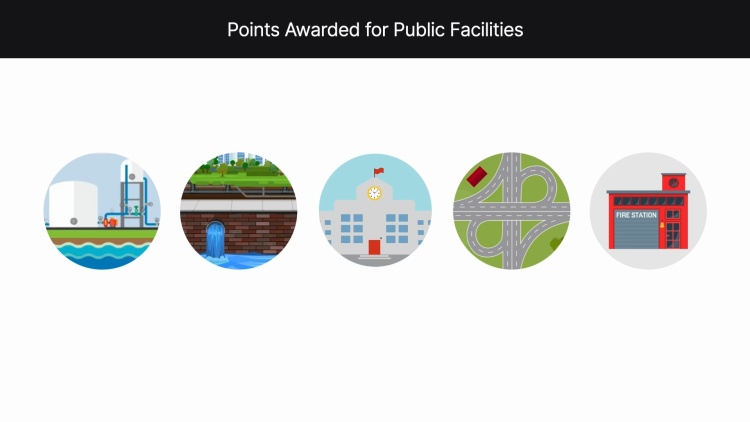Golden v. Planning Board of Ramapo
New York Court of Appeals
285 N.E.2d 291 (1972)
- Written by Anjali Bhat, JD
Facts
Pursuant to a law authorizing the use of zoning ordinances to secure safety, avoid undue concentration of population, and facilitate adequate public services such as transportation, sanitation, education, and parks, the Town of Ramapo (Ramapo) (defendant) passed a law requiring property owners, for the duration of Ramapo’s 18-year capital plan, to first apply for a special permit before applying for the approval of a subdivision plat. A special permit would not be issued unless certain essential services, such as sanitation, drainage, parks, schools, roads, and firehouses, were sufficiently available to the proposed subdivision. Furthermore, those services were to be provided by Ramapo, not by private developers. Accordingly, the approval of a subdivision was conditioned on Ramapo’s own ability to provide these services. Ramapo also allowed for the issuance of special permits that vested a present right to proceed with development when the requirement for services was met, but in no event later than the final year of Ramapo’s 18-year capital plan. Ruth Golden and other property owners (plaintiffs) either were denied the approval of their subdivision plats for failure to first apply for a special permit, or else had never applied for approval of the subdivision plats because they knew that an application would be futile due to the inevitable denial of the required special permit. The plaintiffs brought suit against Ramapo. Ramapo presented evidence that the existing public services were inadequate for expected growth. The plaintiffs’ suits were denied by the special term. However, the appellate division reversed and granted judgments for the plaintiffs, declaring that Ramapo’s requirement for special permits was meant to control or regulate population growth and thus fell outside the authorized purposes of zoning ordinances. Ramapo appealed.
Rule of Law
Issue
Holding and Reasoning (Scileppi, J.)
What to do next…
Here's why 899,000 law students have relied on our case briefs:
- Written by law professors and practitioners, not other law students. 47,000 briefs, keyed to 994 casebooks. Top-notch customer support.
- The right amount of information, includes the facts, issues, rule of law, holding and reasoning, and any concurrences and dissents.
- Access in your classes, works on your mobile and tablet. Massive library of related video lessons and high quality multiple-choice questions.
- Easy to use, uniform format for every case brief. Written in plain English, not in legalese. Our briefs summarize and simplify; they don’t just repeat the court’s language.





